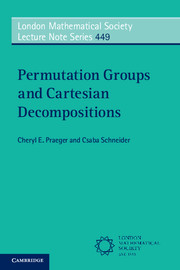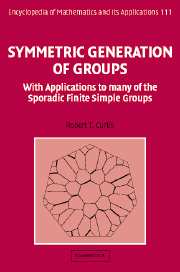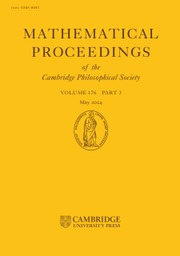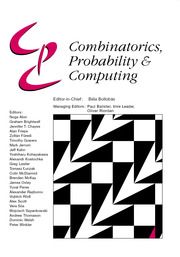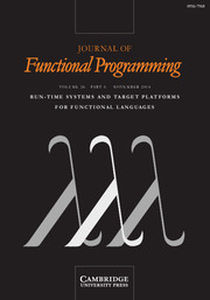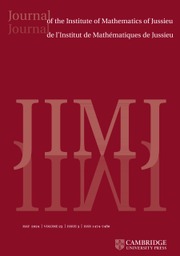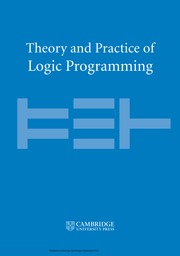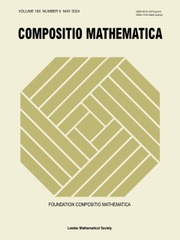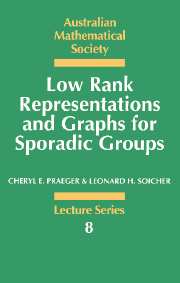Permutation Groups and Cartesian Decompositions
AUD$57.95 inc GST
Part of London Mathematical Society Lecture Note Series
- Authors:
- Cheryl E. Praeger, University of Western Australia, Perth
- Csaba Schneider, Universidade Federal de Minas Gerais, Brazil
- Date Published: May 2018
- availability: Available
- format: Paperback
- isbn: 9780521675062
AUD$
57.95
inc GST
Paperback
Other available formats:
eBook
Looking for an inspection copy?
Please email [email protected] to enquire about an inspection copy of this book
-
Permutation groups, their fundamental theory and applications are discussed in this introductory book. It focuses on those groups that are most useful for studying symmetric structures such as graphs, codes and designs. Modern treatments of the O'Nan–Scott theory are presented not only for primitive permutation groups but also for the larger families of quasiprimitive and innately transitive groups, including several classes of infinite permutation groups. Their precision is sharpened by the introduction of a cartesian decomposition concept. This facilitates reduction arguments for primitive groups analogous to those, using orbits and partitions, that reduce problems about general permutation groups to primitive groups. The results are particularly powerful for finite groups, where the finite simple group classification is invoked. Applications are given in algebra and combinatorics to group actions that preserve cartesian product structures. Students and researchers with an interest in mathematical symmetry will find the book enjoyable and useful.
Read more- Contains a concise introduction to permutation group theory, quickly taking readers to an O'Nan–Scott theory for both primitive and quasiprimitive groups
- Gives a rigorous treatment of cartesian decompositions that are invariant under permutation groups
- Provides researchers with an easily accessible reference to results on group factorisations
Reviews & endorsements
'This is a thorough reference book that consists of three parts … In summary, the book is an impressive collection of theorems and their proofs.' Miklós Bóna, MAA Reviews
See more reviews'One of the most important achievements of this book is building the first formal theory on G-invariant cartesian decompositions; this brings to the fore a better knowledge of the O'Nan–Scott theorem for primitive, quasiprimitive, and innately transitive groups, together with the embeddings among these groups. This is a valuable, useful, and beautiful book.' Pablo Spiga, Mathematical Reviews
Customer reviews
Not yet reviewed
Be the first to review
Review was not posted due to profanity
×Product details
- Date Published: May 2018
- format: Paperback
- isbn: 9780521675062
- length: 334 pages
- dimensions: 227 x 151 x 20 mm
- weight: 0.5kg
- contains: 2 b/w illus. 14 tables
- availability: Available
Table of Contents
1. Introduction
Part I. Permutation Groups – Fundamentals:
2. Group actions and permutation groups
3. Minimal normal subgroups of transitive permutation groups
4. Finite direct products of groups
5. Wreath products
6. Twisted wreath products
7. O'Nan–Scott theory and the maximal subgroups of finite alternating and symmetric groups
Part II. Innately Transitive Groups – Factorisations and Cartesian Decompositions:
8. Cartesian factorisations
9. Transitive cartesian decompositions for innately transitive groups
10. Intransitive cartesian decompositions
Part III. Cartesian Decompositions – Applications:
11. Applications in permutation group theory
12. Applications to graph theory
Appendix. Factorisations of simple and characteristically simple groups
Glossary
References
Index.-
General Resources
Find resources associated with this title
Type Name Unlocked * Format Size Showing of
This title is supported by one or more locked resources. Access to locked resources is granted exclusively by Cambridge University Press to lecturers whose faculty status has been verified. To gain access to locked resources, lecturers should sign in to or register for a Cambridge user account.
Please use locked resources responsibly and exercise your professional discretion when choosing how you share these materials with your students. Other lecturers may wish to use locked resources for assessment purposes and their usefulness is undermined when the source files (for example, solution manuals or test banks) are shared online or via social networks.
Supplementary resources are subject to copyright. Lecturers are permitted to view, print or download these resources for use in their teaching, but may not change them or use them for commercial gain.
If you are having problems accessing these resources please contact [email protected].
Sorry, this resource is locked
Please register or sign in to request access. If you are having problems accessing these resources please email [email protected]
Register Sign in» Proceed
You are now leaving the Cambridge University Press website. Your eBook purchase and download will be completed by our partner www.ebooks.com. Please see the permission section of the www.ebooks.com catalogue page for details of the print & copy limits on our eBooks.
Continue ×Are you sure you want to delete your account?
This cannot be undone.
Thank you for your feedback which will help us improve our service.
If you requested a response, we will make sure to get back to you shortly.
×
